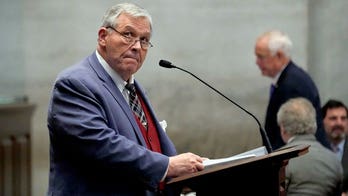The government task force that issued controversial guidelines last month advising against annual mammograms for women under 50 apologized Wednesday for the ruling, which had left many women and health advocates scratching their heads.
The ruling, issued last month by U.S. Preventive Services Task Force, clashed with established guidelines recommending annual mammograms beginning at 40 to detect early signs of breast cancer.
The task force, made up of doctors and scientists, acknowledged the way in which the recommendations were released wasn't done very smoothly -- and the timing wasn't great either, right in the middle of a heated debate on health care.
The apology came at a House Energy and Commerce subcommittee hearing on breast cancer screening recommendations, where lawmakers sought clarity on the ruling.
Although the hearing had been scheduled quickly with the aim of getting explanations and guidance from the task force, it quickly morphed into a renewed debate over the health care legislation working its way through Congress.
"When you have government commissions setting policy instead of a doctor and a patient relationship, you get this," said Rep. John Shimkus, R-Ill.
But Democrats said they simply wanted answers.
"We need to remain, I think, devoted and dedicated to solid science in our country and to pay heed to that, and I think that really drives to the core of what we are here today for. And God help us if we don’t," said Rep. Anna Eshoo, D-Calif.
Conservative critics have said the ruling amounted to "rationing" in the fight against the No. 2 cancer killer in U.S. women, and they cited it as an example of why a government-run insurance plan should not be included in final health reform legislation.
Rep. Dan Burton, R-Ind., is sending letters to Republican senators asking them to wear a pink tie or shirt in opposition to the guidelines as they debate the Senate's version of the health care bill.
"This visual protest will be a sign of solidarity with women across America, and it will send a concerted message that the Republican Party is staunchly opposed to rationing mammograms, or any other policy that rations health care," he said in a written statement.
In its ruling, the task force advises against regular mammography tests in women aged 40 to 49. The guidelines also downplay the effectiveness of self-examinations, though it still advise that women aged 50 to 74 years receive mammograms every year or two.
The task force concluded that early, frequent screenings often lead to false alarms and unneeded biopsies without substantially improving women's odds of survival.
But critics have said the ruling put women at risk because of the mixed message about self-exams and mammograms, and many who are hesitant to get a mammogram may take these recommendations as an excuse to skip the testing.
They also said some cases of breast cancer won't be caught early because women aren't sure what they're supposed to be doing.
Fox News' Shannon Bream contributed to this report.




